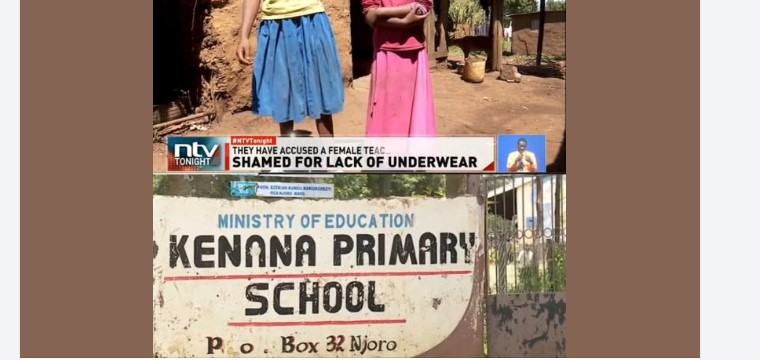Schools are meant to be safe spaces—places where children not only learn but also feel protected, respected, and valued. Yet, for two sisters aged just 12 and 16 from Kenana Primary School in Njoro, Nakuru County, that trust was shattered in the most humiliating way.
According to reports, the girls were singled out and mocked by a female teacher before nearly 20 of her colleagues. Their “offense”? Not wearing underwear. Instead of handling the matter with compassion and privacy, the teacher reportedly went further to “confirm” it in front of the staff room, reducing the sisters to objects of ridicule.
The impact of this act cannot be overstated. For more than a week now, the sisters have been too ashamed to return to school. What should have been an ordinary part of their childhood—attending classes, chasing dreams, and playing with peers—has turned into a source of dread. The wounds left by that public humiliation run far deeper than anyone can see.
Child psychologists emphasize that ridicule, especially when it involves body shaming, leaves lasting scars on a young person’s self-esteem. At ages where identity and confidence are still fragile, such an incident can create trauma that shapes how they view themselves and the world around them.
These girls did not just lose a week of schooling; they lost trust in the very institution that was meant to nurture them. Their dignity was stripped away in a place where they should have felt safest.
This case should remind educators, parents, and society at large that discipline and guidance must never cross the line into humiliation. Respect for children’s dignity is not optional—it is a fundamental responsibility.
The story of these sisters is heartbreaking, but it should also be a call to action. Schools must put in place systems to handle sensitive matters discreetly, and teachers must be trained to recognize the profound impact of their words and actions.
For the two sisters from Njoro, healing will take time. Yet their ordeal highlights a broader truth: safeguarding the dignity of every child is not just about education—it is about humanity.



